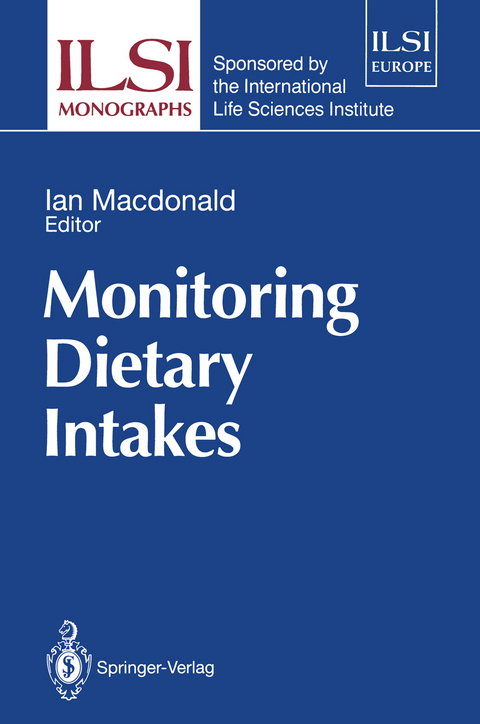
Monitoring Dietary Intakes
Springer London Ltd (Verlag)
978-1-4471-1830-5 (ISBN)
I. Methodologies of Dietary Survey: Its Pitfalls.- 1. Methods for Obtaining Food Consumption Information.- 2. The Validity of Total Diet Studies for Assessing Nutrient Intake.- 3. Household Food Intake (Market Basket).- 4. A National Food Survey. Food Balance Sheets and Other Methodologies: A Critical Overview.- 5. Estimating Human Exposure to Food Constituents.- II. Application.- 6. Intake of Heavy Metals: Comparison of Methods.- 7. Risks of Dietary Exposure to Pesticides in Infants and Children.- 8. Use of Intake Data in Risk Assessments by JECFA/JMPR and in Codex Decisions.- 9. The Importance of Within-Person Variability in Estimating Prevalence.- 10. Use of Food Composition Data Banks in Nutrient Intake Studies.- 11. National Surveillance of Food and Contaminant Intake: The Danish Experience.- 12. Experience of GEMS/Food in Co-ordinating Dietary Intake Studies.- III. Actual Intake Versus Potential Intake in Relation to Nutritional and Safety Standards.- 13. Macronutrient Intake in Relation to Nutritional Standards.- 14. The Purchasing Method for the Estimation of Vitamins and Minerals Intake of the Adult.- 15. Food Additive Intake: Estimated Versus Actual.- 16. Pesticide Residues in the United States Diet.- 17. Monitoring Dietary Radiocesium Intake in Sweden After the Chernobyl Accident.- 18. Estimating the Dietary Intake of Veterinary Drug Residues.- 19. Do Actual Intakes Ever Equal Potential Intakes?.- 20. Packaging Materials.- IV. Needs and Prospects of Intake Studies.- 21. WHO International Co-operation in Exposure Studies.- 22. Means of Improving the Comparability of Intake Studies.- 23. Future Trends and Co-operation Concerning Intake Studies.- 24. Dietary Intakes: Summary and Perspectives.
| Reihe/Serie | ILSI Monographs |
|---|---|
| Vorwort | Robert Kroes |
| Zusatzinfo | XIV, 259 p. |
| Verlagsort | England |
| Sprache | englisch |
| Maße | 155 x 235 mm |
| Themenwelt | Medizin / Pharmazie ► Medizinische Fachgebiete ► Pharmakologie / Pharmakotherapie |
| Medizin / Pharmazie ► Pharmazie | |
| Naturwissenschaften ► Biologie ► Biochemie | |
| Technik ► Lebensmitteltechnologie | |
| Schlagworte | acceptable daily intake • Additives • Contaminants • Ernährung • food components • Lebensmittelchemie • Lebensmittelfremdstoff • Lebensmitteltabelle • Lebensmitteltoxikologie • Methodologies |
| ISBN-10 | 1-4471-1830-8 / 1447118308 |
| ISBN-13 | 978-1-4471-1830-5 / 9781447118305 |
| Zustand | Neuware |
| Haben Sie eine Frage zum Produkt? |
aus dem Bereich


